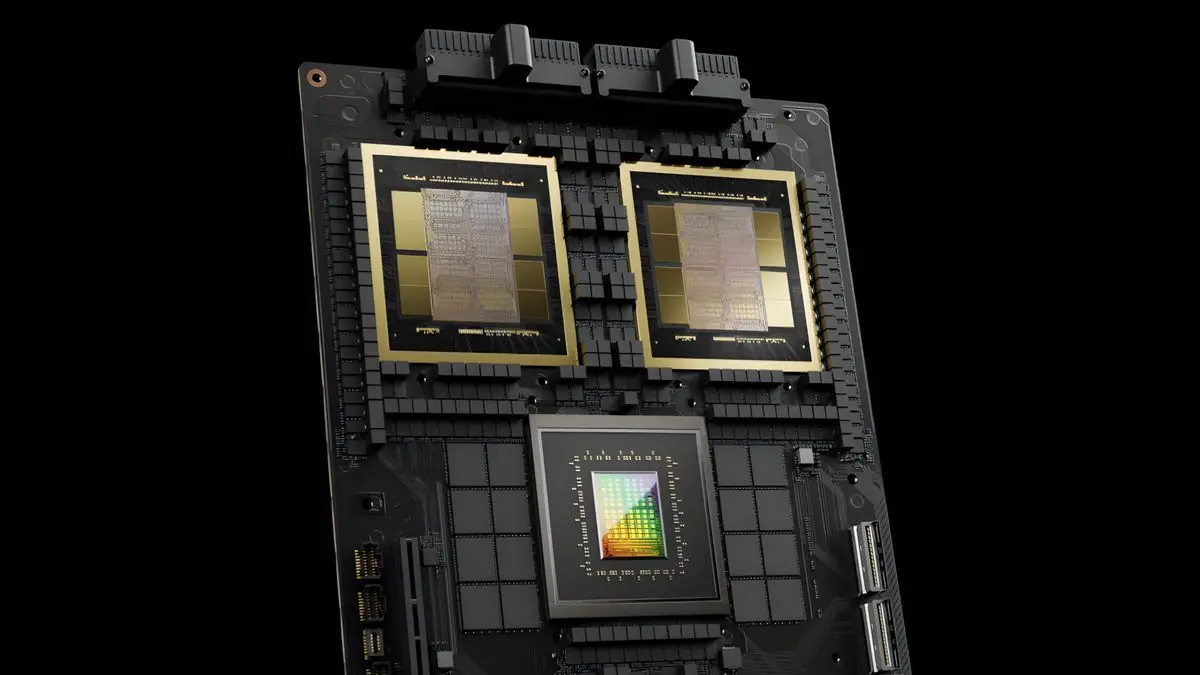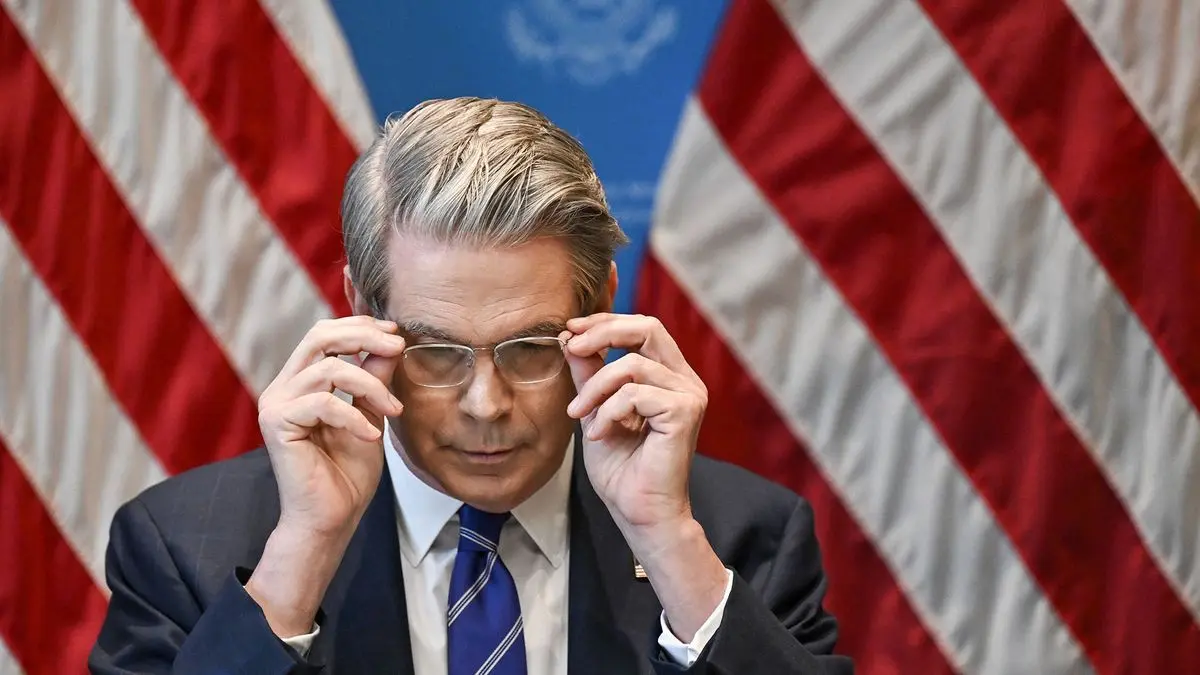Chinese AI Startup Accesses 2,300 Banned Nvidia Blackwell GPUs Through Indonesian Cloud Loophole
2 Sources
2 Sources
[1]
Chinese AI startup gets access to 2,300 banned Blackwell GPUs by exploiting cloud loophole -- rents compute from Indonesian firm with 32 Nvidia GB200 server racks
The company isn't listed in the U.S. Entity List, but some are concerned that blacklisted companies might use this route to gain access to the latest Nvidia hardware. Even though U.S. President Donald Trump says that Nvidia's latest Blackwell chips will not be sold to China, Chinese companies still find ways to legally get access to Nvidia's latest GPUs. According to an investigation by the Wall Street Journal, INF Tech, a Shanghai-based startup developing AI for finance and health applications, gained access to 2,300 banned Nvidia AI GPUs operated by a company in Jakarta, Indonesia. This move may seem illegal, especially amid all the rhetoric from Washington, D.C., and Beijing, but lawyers say it is completely legal. The trail started in California, where Nvidia sells its latest chips to Aivres, one of its partners that builds AI servers. Interestingly, some claim that Aivres is partly owned by Inspur, a Chinese tech company that has since been blacklisted by the U.S. government for working with the Chinese military, although the company does not publicly disclose its ownership structure. But given that it's a U.S.-based company, it's not bound by the export restrictions put on foreign corporations as long as it follows U.S. export rules. From here, an Indonesian telecommunications company, Indosat Ooredoo Hutchison, acquired 32 Nvidia GB200 server racks from Aivres. With each rack containing 72 Blackwell chips, this amounts to 2,304 GPUs, which is a relatively small amount compared to the massive data centers AI giants like OpenAI and xAI are putting up. Still, this is a massive deal for the Indonesian company, amounting to about $100 million. However, Indosat did not buy the GPUs without first securing a customer. According to the WSJ, sources say Aivres found a client for the Indonesian telco first with INF Tech. This startup was founded by Qi Yuan, a Chinese-born American citizen who also heads the AI institute at Fudan University. It was even said that the university had representatives during the negotiations between INF Tech and Indosat, although INF Tech was the signatory in the contract. With the contract signed, Indosat proceeded with the purchase, with the servers being installed at its site in Jakarta as of October 2025. Given that Indosat, INF Tech, and even Fudan University aren't included in the U.S. Entity List, the deal seems to be above board. However, this will definitely raise some eyebrows, especially among those opposed to Chinese companies gaining access to American hardware. After all, they say that even though Chinese companies may not work with the CCP and its military right now, Beijing can compel any corporation -- state-owned or otherwise -- to cooperate with the state. The Biden administration's AI Diffusion Rule would have prevented this from happening, but President Trump did not implement it. On the other hand, Nvidia has been pushing for more lenient export controls, arguing that the U.S. should allow nations to access its hardware to help maintain its lead. When asked for comment, Nvidia said that its compliance team has evaluated and cleared its partners before receiving their shipments. "We support the Trump administration's vision to secure U.S. AI leadership and create American jobs," said the company's spokesperson. "The Biden controls cost taxpayers tens of billions, crippled innovation, and ceded ground to foreign rivals." INF told the Wall Street Journal that it does not do any research with military applications and that it complies with U.S. export controls. The publication also reached out to Indosat, asking whether it had been approached by Chinese customers, to which its chief executive, Vikram Sinha, said it works with multinational companies. "Any customer that is outside Indonesia goes through the same regulation, whether it is a U.S. company or a China company," says Sinha. "If it clears all the regulations, we support it."
[2]
A Wall Street Journal investigation claims to have tracked how 2,300 Nvidia Blackwell AI chips made their way to China via an Indonesian telecoms provider
While there has been a cooling off of the rhetoric surrounding trade relations between the US and China over the past few weeks, after US President Donald Trump and Chinese President Xi Jinping met in South Korea last month, Nvidia's high-end Blackwell GPUs were not part of the discussions. Existing chip export restrictions preventing Nvidia from selling its top-end hardware to China remain, but The Wall Street Journal claims it has traced how 32 Nvidia GB 200 server racks, containing 2,300 Blackwell chips, made their way to China via an Indonesian company -- eventually ending up in the hands of a Chinese AI tech provider. According to the WSJ, the chips were bought from Nvidia by Silicon Valley-based AI server manufacturer Aivres, which operates under a parent company that is one-third-owned by Inspur, a Chinese company that was added to the US government's trade blacklist in 2023, over claims that it worked on Chinese military supercomputing projects. Aivres went on to sell the 32 Nvidia GB200 server racks to an Indonesian telecoms company, Indosat Ooredoo Hutchison, the WSJ claims, for around $100 million. According to its sources, Indosat bought the servers after securing Shanghai-based AI startup INF Tech as a client, with Aivres' help. INF Tech was founded by Professor Qi Yuan, the head of the AI institute at Fudan University. Yuan's representatives were said to be part of the negotiations, although INF is claimed to have ultimately signed the contract for the AI server deal. The WSJ's sources say the servers were delivered to Chinese shores and installed in October, with their ultimate purpose being the training of AI models for financial applications and scientific research. Speaking to the outlet, Thea Kindler, former US assistant secretary of commerce for export under the Biden administration, said that a rule created in the last days of its tenure, designed to tighten controls over the sale of advanced US chips to China, would have given the US a chance to scrutinize customers buying chips, not just the exporter. However, the Trump administration later said it wouldn't enforce the rule, which means "the [US] government is pushing it on the companies to do their own due diligence." Lawyers familiar with export controls told the WSJ that the arrangement comports with current US export restrictions. The Wall Street Journal says that it reached out to Aivres for comment, but the company did not respond. A spokesperson for Nvidia, however, told the WSJ that the company's compliance team evaluates its partners before they receive Nvidia products, and gave the following statement: "We support the Trump administration's vision to secure US AI leadership and create American jobs. The Biden controls cost taxpayers tens of billions, crippled innovation, and ceded ground to foreign rivals." For INF's part, the company told the WSJ that it doesn't do any research with military applications and complies with US export controls, while Indosat chief executive Vikram Sinha said: "Any customer which is outside Indonesia goes through the same regulation, whether it is a US company or a China company. If it clears all the regulations, we support it."
Share
Share
Copy Link
A Shanghai-based AI startup successfully obtained access to restricted Nvidia Blackwell GPUs by renting compute power from an Indonesian telecommunications company, exploiting a legal loophole in U.S. export controls.
Complex Supply Chain Circumvents Export Restrictions
A Shanghai-based AI startup has successfully gained access to 2,300 banned Nvidia Blackwell GPUs through a sophisticated but legal arrangement involving multiple international partners. INF Tech, founded by Chinese-born American citizen Qi Yuan who heads the AI institute at Fudan University, secured access to the restricted hardware by renting compute power from Indonesian telecommunications company Indosat Ooredoo Hutchison
1
.
Source: PC Gamer
The arrangement began in California, where Nvidia sold its latest Blackwell chips to Aivres, a Silicon Valley-based AI server manufacturer. Aivres, which operates under a parent company reportedly one-third owned by blacklisted Chinese tech company Inspur, then sold 32 Nvidia GB200 server racks to the Indonesian telecommunications provider for approximately $100 million
2
.Strategic Pre-Arrangement of Customer Base
According to Wall Street Journal sources, Indosat did not purchase the GPU servers without first securing a guaranteed customer. Aivres reportedly helped facilitate the connection between the Indonesian telecommunications company and INF Tech before the purchase was finalized. Representatives from Fudan University were said to be present during negotiations, though INF Tech ultimately signed the contract as the official client
1
.The 32 server racks, each containing 72 Blackwell chips for a total of 2,304 GPUs, were installed at Indosat's Jakarta facility in October 2025. While this represents a relatively modest deployment compared to the massive data centers operated by AI giants like OpenAI and xAI, it provides significant computational resources for INF Tech's AI development in finance and health applications
2
.Legal Compliance Despite Regulatory Concerns
Lawyers familiar with export controls confirmed that the arrangement complies with current U.S. export restrictions, as none of the involved parties—Indosat, INF Tech, or Fudan University—appear on the U.S. Entity List. However, the deal raises concerns among those opposed to Chinese access to advanced American hardware, particularly given Beijing's ability to compel domestic companies to cooperate with state interests
1
.The Biden administration's AI Diffusion Rule, designed to tighten controls over advanced chip sales to China, would have provided additional scrutiny over such arrangements. However, the Trump administration chose not to implement this rule, leaving companies to conduct their own due diligence. Thea Kindler, former U.S. assistant secretary of commerce for export under the Biden administration, noted that the abandoned rule would have given the government greater oversight of customers purchasing chips, not just exporters
2
.Related Stories
Industry Responses and Policy Implications
Nvidia has advocated for more lenient export controls, arguing that allowing nations access to its hardware helps maintain U.S. technological leadership. A company spokesperson stated support for "the Trump administration's vision to secure U.S. AI leadership and create American jobs," while criticizing Biden-era controls as costly and innovation-stifling
1
.INF Tech emphasized its compliance with U.S. export controls and stated it conducts no research with military applications. Indosat CEO Vikram Sinha defended the company's approach, explaining that all international customers undergo the same regulatory review process regardless of nationality, with support provided only after clearing all applicable regulations
2
.References
Summarized by
Navi
[1]
Related Stories
Recent Highlights
1
Pentagon threatens Anthropic with Defense Production Act over AI military use restrictions
Policy and Regulation

2
Google Gemini 3.1 Pro doubles reasoning score, beats rivals in key AI benchmarks
Technology

3
Anthropic accuses Chinese AI labs of stealing Claude through 24,000 fake accounts
Policy and Regulation








